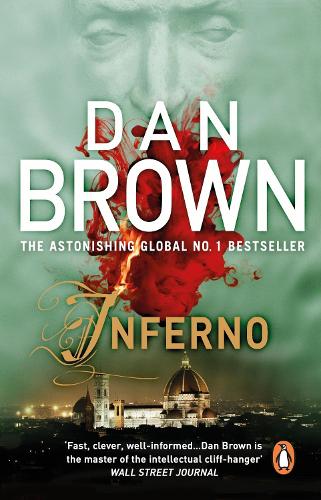Let me just put it out there before I begin – I would not recommend reading this book while in the middle of a world epidemic. Terrible decision.
Professor Robert Langdon wakes up in a hospital bed in Florence with no recollection of how he got there. He is attacked at the hospital and flees with his doctor, Sienna Brooks. His only lead to what happened is a digitally edited version of Botticelli’s ‘Map of Hell’. They must follow clues hidden in the digital painting in order to stop a terrible creation from being unleashed. The creator, Zobrist, believed that the human race was on its downfall due to overpopulation and the only way to save it was to take drastic actions. His answer? A pandemic.
As I am currently writing this at the peak of the COVID-19 outbreak in the UK it’s a pretty dire novel to read. This is a strength of the novel, in that it manages to convey that fear that many of us have about the state of the planet into a plotline impending global catastrophe. By that I mean, fear is an international language and no matter how small or substantial the cause it is still the same. Squeezing toothpaste out of the tube and noticing the ‘save water’ logo brings a rising panic of how we with our abundance of fresh clean water may one day become similar to those in dryer lands, with scarcely enough to survive. Back to the novel itself, I know that the situations are not the same and that we have antivirals and ventilators etc, but given that the Black Death started in China and hit Italy badly, it hits a little close to home. With the Black death reducing Europe’s population by an estimated 50% and the fact that there is currently no vaccine for COVID-19, Dan Brown managed to scare me sh*tless – from describing in detail the levels of hell which makes me want to become a devout Catholic, to overpopulation which makes me want to sacrifice myself to try and save the planet. Thanks for that.
Like most terrible ideas from terrible people, there is usually some sound reasoning behind their crazed ideology. Zobrist’s transhumanist ideas could revolutionize the way that we tackle major infective diseases. A few years ago the world was shocked when a Chinese scientist gene-edited embryos to give HIV protection. Modifying somatic cells such as that seen in treatments for cystic fibrosis is not inherited into the next generation, while the modification of germline cells (embryos) could be inherited. Zobrist’s example is that such gene therapy could change the way we deliver vaccines – instead of delivering billions of vaccines each year, one generation could be treated, which protects the subsequent. Inherited immunisations.
The novel forces us to think about life and death in terms of culture. I never knew that The Black Death was followed by a Renaissance in Europe, a rebirth of culture. It gave us the works of the revolutionary Leonardo da Vinci which threw our understanding of the human body forward, the plays of Shakespeare, Michaelangelo’s carving of David, and Copernicus who said that the sun was the center of the universe, not the earth. It is beautiful really, that something so destructive was followed by something so revolutionary. History repeats itself, where the The Spanish Flu gave us the Flapper and a giant leap in women’s rights (I mean, women’s rights had been a long fight but just for the sake of this review). Now a century later – what will we churn out?
‘One great work of art inspired by another’
This quote refers Langdon referring to the fact that Dante’s poem inspired Botticelli painting of the ‘Map of Hell’, and I feel like sometimes we forget that there are millennia of ideas out there and that we shouldn’t dismiss them just because they didn’t have the same technological advances as us. Art can inspire science, and science art.
The three sections of Dante’s poem – inferno, purgatorio, paradisio reminds me of quote linked to WW2 – ‘If you’re going through hell, keep going’. We are in the middle of darkness, and what is to come will also invariably be dark. But just because our future may look bleak at the moment, we cannot despair. We must continue with our journey through this darkness to fight the virus and the recession to come. We have a choice, to stop now and be in a prolonged darkness, to fight, and be freed from it a little quicker.
Another quote from the book which I totally loved was that ‘the truth can only be glimpsed only through the eyes of death’ – coming out from a mental cloud of darkness, or emerging from this isolation during COVID-19, we will see things differently. Perhaps this nation will finally start treating healthcare professionals as heroes as they are. Perhaps that is too much to ask of the British public.
